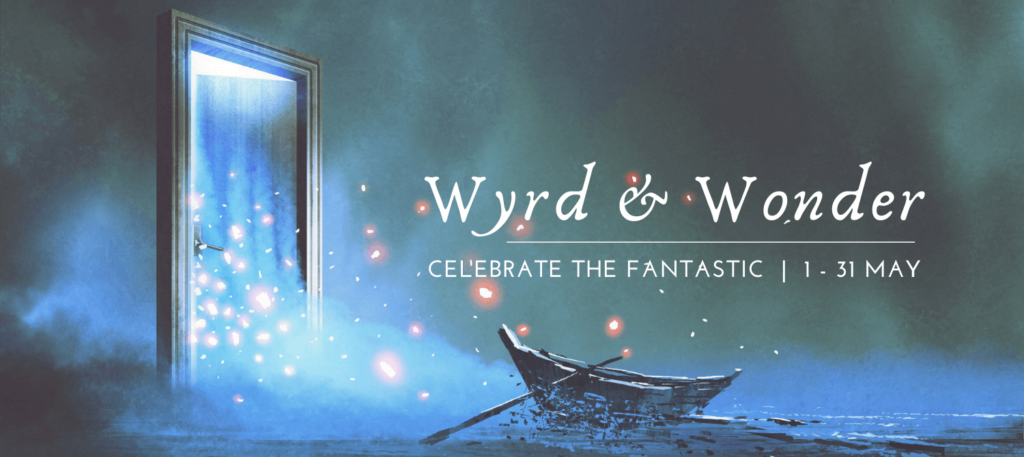
Every year that I’ve taken part in Wyrd & Wonder, I’ve made lists of cool magic systems and another for magical abilities – and I’m not breaking my streak now! Here is 2023’s list of magic systems I find especially enchanting – please enjoy!
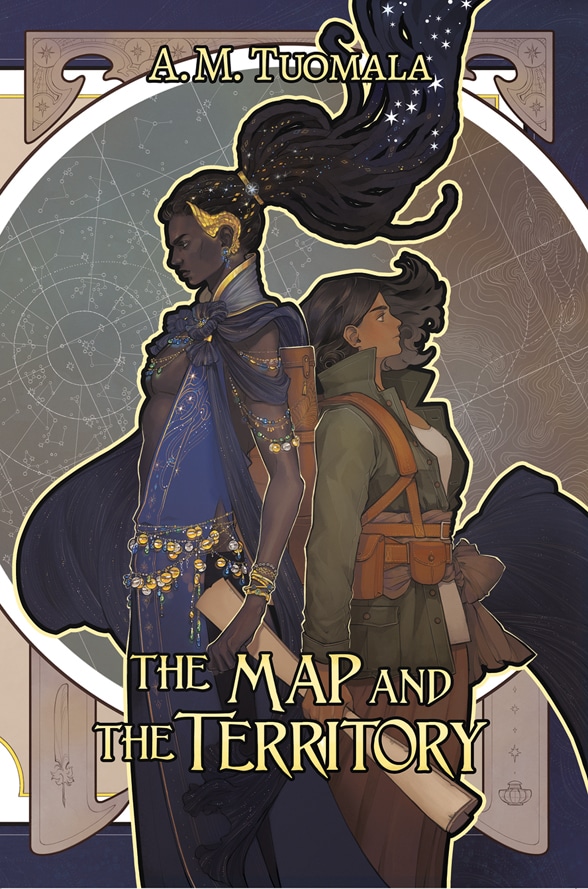
Genres: Fantasy, Queer Protagonists
Goodreads
When the sky breaks apart and an earthquake shatters the seaside city of Sharis, cartographer Rukha Masreen is far from home. Caught in the city's ruins with only her tools and her wits, she meets a traveling companion who will change her course forever: the wizard Eshu, who stumbles out of a mirror with hungry ghosts on his heels.
He's everything that raises her hackles: high-strung, grandiloquent, stubborn as iron. But he needs to get home, too, and she doesn't want him to have to make the journey alone.
As they cross the continent together, though, Rukha and Eshu soon realize that the disaster that's befallen their world is much larger than they could have imagined. The once-vibrant pathways of the Mirrorlands are deserted. Entire cities lie entombed in crystal. And to make matters worse, a wild god is hunting them down. The further they travel from familiar territory, the more their fragile new friendship cracks under the strain.
To survive the end of their world, Rukha and Eshu will need more than magic and science—they'll need each other.
I’ve seen magic systems that use singing before, but I’ve never seen it done as beautifully as in The Map and the Territory! Tuomala’s prose makes the magic here breathtaking, and even aside from that, I really love how it’s not a matter of ‘sing x song for z effect.’ Eshu has to sing about things he has an emotional connection to, building the magic out of images and memories that have meaning to him. A spell for safety might mean singing about the house he grew up in, for example, as opposed to just singing about protective barriers or something. I love that the system is so soft and fluid – I just really feel that that’s what magic should be like!

Genres: Fantasy, Queer Protagonists
Goodreads
Krona and her Regulators survived their encounter with Charbon, the long-dead serial killer who returned to their city, but the illusions of their world were shattered forever.
Allied with the healer Melanie they will battle the elite of their world who have ruled their world with deception, cold steel, and tight control of the magic that could threaten their power, while also confronting beasts from beyond the foggy barrier that binds their world.
Now they must follow every thread to uncover the truth behind the Thalo, once thought of as only a children's tale, who are the quiet, creeping puppet masters of their world.
This is the second book in a trilogy, and you really do need to read the first book first! But Cage introduces us to cryptopathy, a kind of magic that works with secrets. Specifically, the manipulation of them; discovering them, revealing them, and most interestingly (imo), taking them away. Removing the secret of sleep from a person, for example, leaves them unable to sleep, while taking away the secret of wakefulness makes them sleep – and while practitioners can read a person’s thoughts, they can only read thoughts that a person wants to keep secret, not their thoughts in general. (This has the very cool result that people who are very open or shameless can’t be read at all, which is a fascinating defence against telepathy!)
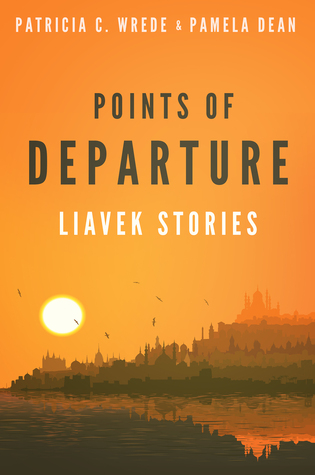
Genres: Fantasy
Goodreads
Two stalwarts of science fiction combine to pen a dazzling set of stories wild and whimsical, thrilling and powerful.
Liavek is a hot, busy trade city, situated on the southern shore of the Sea of Luck at the mouth of the Cat River. In Liavek, magic is based on one’s “birth luck” and the length of time one’s mother was in labor. Everyone has luck, but using it is another matter. Luck, or magic, must be invested annually in some object outside oneself; only then can it be used to power spells. And investing one’s magic is difficult and dangerous. Prospective magicians who fail find their magic draining away, and with it, their life.
From that mad and wonderful seed, Wrede and Dean create an enthralling set of stories, where a god is trapped in the body of a chipmunk, where a play has the potential to incite a riot and change a nation, and where a family is coming apart at the seams, and going to enormous lengths to stitch itself back together.
All of the stories are tied together by the unforgettable character of Granny, Ka’Riatha—the one the Book of Curses calls the Guardian of the S’Rian Gods. Granny moves through each story, casting spells and bringing her tart brand of wisdom to a world come undone. This spellbinding set is perfect for fans of both titans of the genre, and will bring equal parts thrilled gasps and charmed smiles to readers everywhere.
Magic in the world of Liavek looks pretty much what you expect magic to look like – but it’s where it comes from that delights me. Magic – known as ‘luck’ – is determined by how many hours your parent was in labour with you. If you were a quick birth – four or five hours – well, that’s not a whole lot of magic, and you probably don’t undergo the training required to become an actual magician. But 12 hours, or 24 (which is pretty common with a first child)? That’s huge. That is a great deal of magic indeed!
It’s not surprising then that in Liavek, midwives are often asked to help make labour last as long as possible, in the hopes of the baby growing up to be a powerful magician!
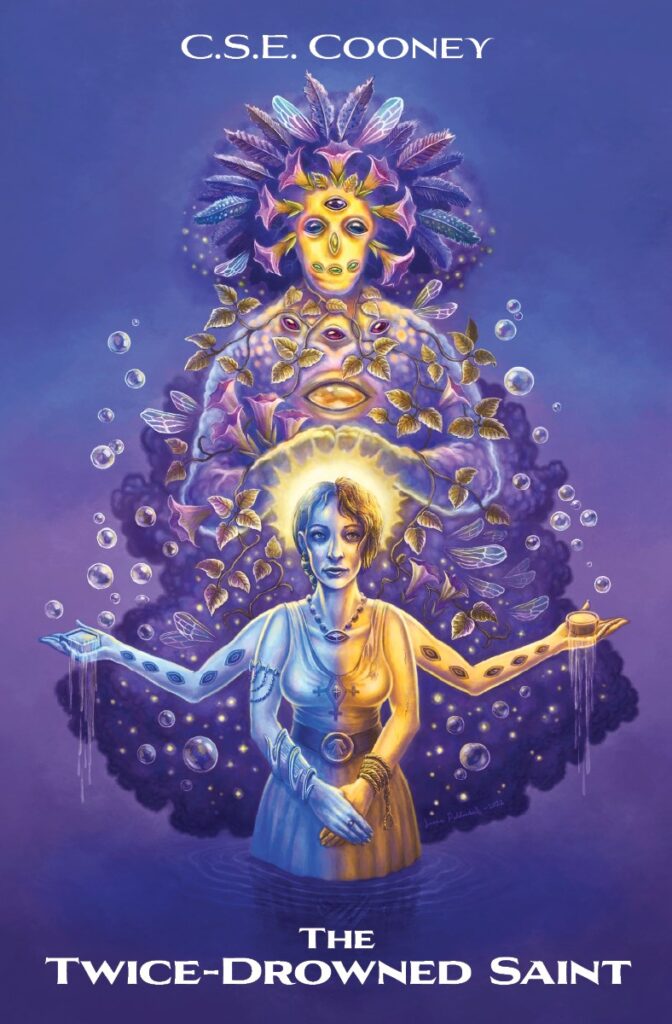
Genres: Fantasy
Goodreads
"World Fantasy Award winner Cooney imagines angels as Lovecraftian monsters . . . Plenty of charm!"
—Publishers Weekly"Many have spoken about how angels can be both terrifying yet beautiful, but few have successfully captured the idea well-until The Twice-Drowned Saint, at least. A sumptuous, saw-toothed read, it is a jewel box of a novel, glittering with a thousand details and a bright longing we're all familiar with, this want for a place better than we're in now."
—Cassandra Khaw, Bram Stoker and World Fantasy award-nominated author of Nothing but Blackened TeethWorld Fantasy Award winner C. S. E. Cooney takes readers on a journey of wonder, terror, and joy in this mind-bending, heartfelt novel. Contained inside impassable walls of ice, the city of Gelethel endures under the rule of fourteen angels, who provide for all their subject's needs and mete out grisly punishments for blasphemous infractions, with escape attempts one of the worst possible sins.
"Our narrator is Ishtu Q'Aleth (Ish for short), the new owner of Gelethel's only cinema (having taken over from her father). More importantly, she's also the secret saint of Alizar the Eleven-Eyed, Seventh Angel of Gelethel, and one of the fourteen angels who holds dominion over the city. As Ish explains it, at the age of eight she turned down Alizar's offer to be his saint, but, in a moment that speaks to the novel's charm, the young girl and the all-knowing angel agreed to continue their relationship in secret after bonding over their shared love of cinema. Near thirty years later Ish is desperate to get her sick parents out of the city, a near-impossible task given Gelethel is surrounded by an impenetrable blue serac. But Ish's situation grows even more complicated when a new arrival to the city, a girl named Betony, appears as Alizar's true saint. There's so much to adore about the The Twice-Drowned Saint ... [a] sublime short novel."
—Locus"With The Twice-Drowned Saint, C. S. E. Cooney once again crafts dazzling feats of imagination grounded in human frailties and plunges her audience inside head-first. Her boldly unique characters live in a fever dream of balletic, graceful description that will make you gasp, even as they find their own escape through the seemingly-mundane world of movies. Like nothing else you've ever read, or will ever read."
—Randee Dawn, author of Tune in Tomorrow"Fabulous Gelethel is a city of godless angels who intoxicate themselves on human death, but within its icy walls a hidden saint and a dissident angel are hatching a plan. This story left me wrecked and rebuilt: it's a truly glorious tale of family bonds, forgiveness, sacrifice, courage ... and how gods are born. Written with Cooney's signature soaring prose, humor, and imagination, this tale shines a light on cruelties both fantastical and familiar. It honors sorrow and embraces joy-I will treasure it always"
—Francesca Forrest, author of The Inconvenient God"The way Cooney does world building, she makes the world absolutely gigantic, and then she focuses the lens onto these intimate moments in people's lives . . . My clumsy words don't do justice to The Twice Drowned Saint. Just read it. It is a sunrise, where all things are beautiful and possible, and it is blood on the ground surrounded by those who lap it up, hungering for more. This is one of the best pieces of fiction I've read this year."
—Little Red ReviewerCover art, cover design and interior black and white illustrations by Lasse Paldanius.
If you argue that I’m cheating by including Twice-Drowned Saint, well, I’ll concede the point – it’s not technically a magic system that I’m featuring here, so much as a system that has grown up around the magic. In the very literal city of angels in this book, each district is provided with miracles by their ruling angel – and the miracles are very specific; one angel provides electricity, one meat, and so on. These ‘benisons’ are then used as currency by the humans of the city when each district trades with the rest – so the angelic magic? Is almost literally money.
And I’m sorry, I know I’m a geek, but miracles-as-money??? It’s a system, it’s magic, and it is very cool to me!

Genres: Fantasy, Historical Fantasy
Goodreads
From award-winning author R. F. Kuang comes Babel, a historical fantasy epic that grapples with student revolutions, colonial resistance, and the use of language and translation as the dominating tool of the British Empire
Traduttore, traditore: An act of translation is always an act of betrayal.
1828. Robin Swift, orphaned by cholera in Canton, is brought to London by the mysterious Professor Lovell. There, he trains for years in Latin, Ancient Greek, and Chinese, all in preparation for the day he’ll enroll in Oxford University’s prestigious Royal Institute of Translation—also known as Babel. The tower and its students are the world's center for translation and, more importantly, magic. Silver-working—the art of manifesting the meaning lost in translation using enchanted silver bars—has made the British unparalleled in power, as the arcane craft serves the Empire's quest for colonization.
For Robin, Oxford is a utopia dedicated to the pursuit of knowledge. But knowledge obeys power, and as a Chinese boy raised in Britain, Robin realizes serving Babel means betraying his motherland. As his studies progress, Robin finds himself caught between Babel and the shadowy Hermes Society, an organization dedicated to stopping imperial expansion. When Britain pursues an unjust war with China over silver and opium, Robin must decide . . .
Can powerful institutions be changed from within, or does revolution always require violence?
There is so much to love about Babel, but in discussing the incredible ways it deals with racism and colonialism and academia, the deceptively simple magic system sometimes gets lost. Which is a shame, because it’s awesome.
We’ve all heard of magic words, but in Babel, any word in any language has the potential to become a magic one. See, in this system, magic comes from the failures of translation. You etch a word into a silver bar, and you etch a translation of that word on the other side of the bar. The power comes from, and is shaped by, the meaning that is lost in the act of translation – and, if you personally truly-really-deeply understand both the languages involved, you can activate that power.
I love everything about this – it’s so unique, and so clever, and the applications are pretty literally endless; because every word-pair is different, ever bar creates a different magical effect. In Babel, the bars have found incredible uses, from powering tram-cars to allowing for physics-defying architecture – and also extremely frivolous things like making cut flowers last longer.
Don’t get me wrong: Babel deserves all the praise it gets for its more serious aspects. It’s just that it really deserves that praise for its magic system too!
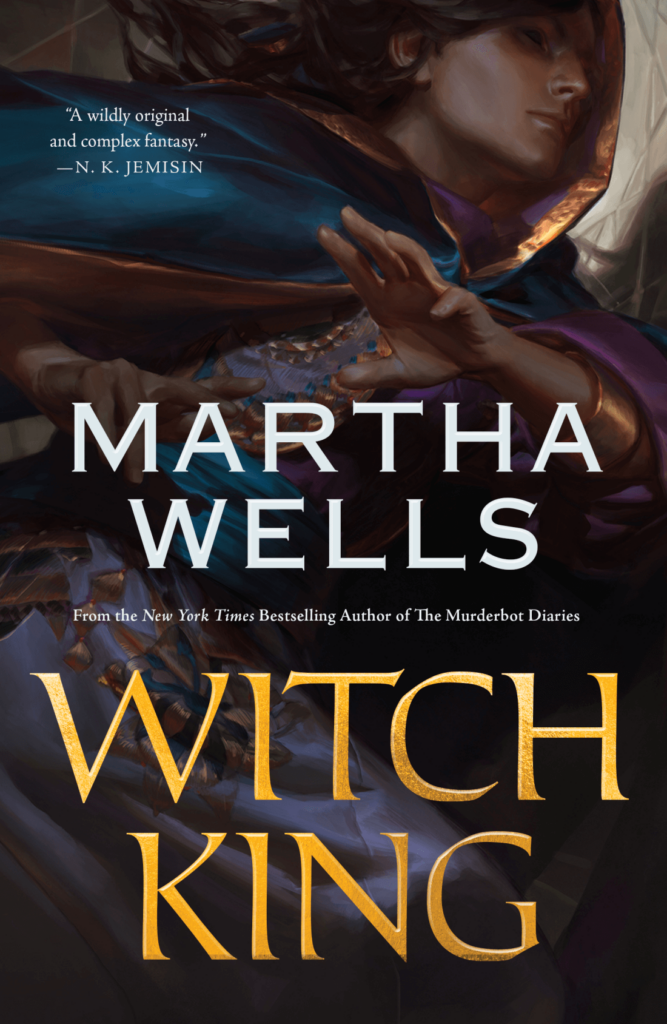
Genres: Fantasy
Published on: 30th May 2023
Goodreads
A story of power and friendship, of trust and betrayal, and of the families we choose.
"I didn't know you were a... demon."
"You idiot. I'm the demon."
Kai's having a long day in Martha Wells' Witch King....After being murdered, his consciousness dormant and unaware of the passing of time while confined in an elaborate water trap, Kai wakes to find a lesser mage attempting to harness Kai’s magic to his own advantage. That was never going to go well.
But why was Kai imprisoned in the first place? What has changed in the world since his assassination? And why does the Rising World Coalition appear to be growing in influence?
Kai will need to pull his allies close and draw on all his pain magic if he is to answer even the least of these questions.
He’s not going to like the answers.
I think the first time I encountered pain magic was the Obsidian Mountain trilogy by Mercedes Lackey and James Mallory – and now I think about it, it was demons who used that version of pain magic too! – but that time and every time since, drawing power from pain is something I’ve only ever seen villains do…until this book. I don’t think it’s a spoiler to say that Kai uses his own pain to power his magic (what else could he do, if he’s not a villain?), and the way that affects his relationship with his body is fascinating. If I remember correctly, it’s not just physical pain he can draw on, either, which is fascinating all by itself!
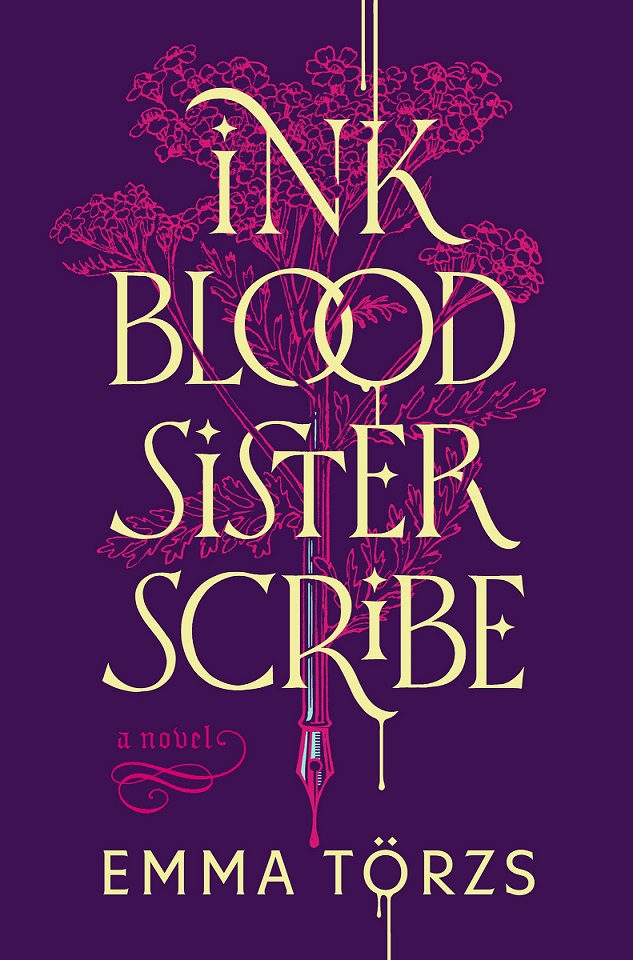
Genres: Fantasy, Contemporary or Urban Fantasy, Queer Protagonists
Published on: 30th May 2023
Goodreads
In this spellbinding debut novel, two estranged half-sisters tasked with guarding their family's library of magical books must work together to unravel a deadly secret at the heart of their collection--a tale of familial loyalty and betrayal, and the pursuit of magic and power.
For generations, the Kalotay family has guarded a collection of ancient and rare books. Books that let a person walk through walls or manipulate the elements--books of magic that half-sisters Joanna and Esther have been raised to revere and protect.
All magic comes with a price, though, and for years the sisters have been separated. Esther has fled to a remote base in Antarctica to escape the fate that killed her own mother, and Joanna's isolated herself in their family home in Vermont, devoting her life to the study of these cherished volumes. But after their father dies suddenly while reading a book Joanna has never seen before, the sisters must reunite to preserve their family legacy. In the process, they'll uncover a world of magic far bigger and more dangerous than they ever imagined, and all the secrets their parents kept hidden; secrets that span centuries, continents, and even other libraries . . .
In the great tradition of Ninth House, The Magicians, and Practical Magic, this is a suspenseful and richly atmospheric novel that draws readers into a vast world filled with mystery and magic, romance, and intrigue--and marks the debut of an extraordinary new voice in speculative fiction.
The idea that books of spells might be magical in and of themselves isn’t too groundbreaking – but what if the book was the spell? In Ink Blood Sister Scribe, spells are books, cast by activating them with a drop of blood and then reading the whole book aloud. (Fortunately, most spells aren’t very long – if you had to read aloud the great big door-stopper of a tome most of us think of when we hear book of spells, you’d be at it for days!)
If that was the whole of it, I’d still want to include this book on the list, but it goes on: the text of a spell fades a little each time it’s read aloud – meaning it doesn’t last forever. How many times a spell can be read before it’s used up varies (and you read Ink Blood Sister Scribe – which you should, it’s excellent – you do find out why that is), which makes the books even more precious – each one is a finite resource.
I’m just completely in love with the sneaky thinking that turns book of spells into the book IS the spell!
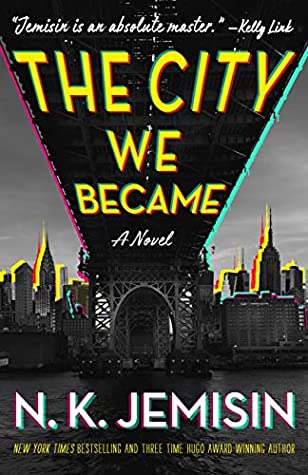
Genres: Fantasy, Contemporary or Urban Fantasy, Queer Protagonists
Goodreads
Five New Yorkers must come together in order to defend their city.
Every city has a soul. Some are as ancient as myths, and others are as new and destructive as children. New York City? She's got five.
But every city also has a dark side. A roiling, ancient evil stirs beneath the earth, threatening to destroy the city and her five protectors unless they can come together and stop it once and for all.
The idea of human avatars of cities is obviously ridiculously cool, but that’s not a magic system. The way those avatars utilise the power of their cities is one, and I’m delighted to be able to tell you that it, also, is fantastic.
The very loose, very fluid magic system in this duology is based on symbolism – the symbolism of the city in question. Objects or actions that have meaning for or related to the city can be used to channel its power – so in New York, hailing a cab can be a way to use magic. In Manhatten specifically, where ‘money talks’, a circle of cash can act as a protective barrier. And so on. Tell me that’s not such a cool concept! And again, I love that this has no hard and fast rules, nothing as simple as magic words or rituals to memorise. Every avatar has to discover for themselves how to tap their power, and the only limits are ingenuity and how well you understand your city’s identity.
One of my favorite aspects of the second book was seeing (albeit briefly) the older, more experienced cities using this power – because of course, they’ve got a much better handle on it than newborn New York!
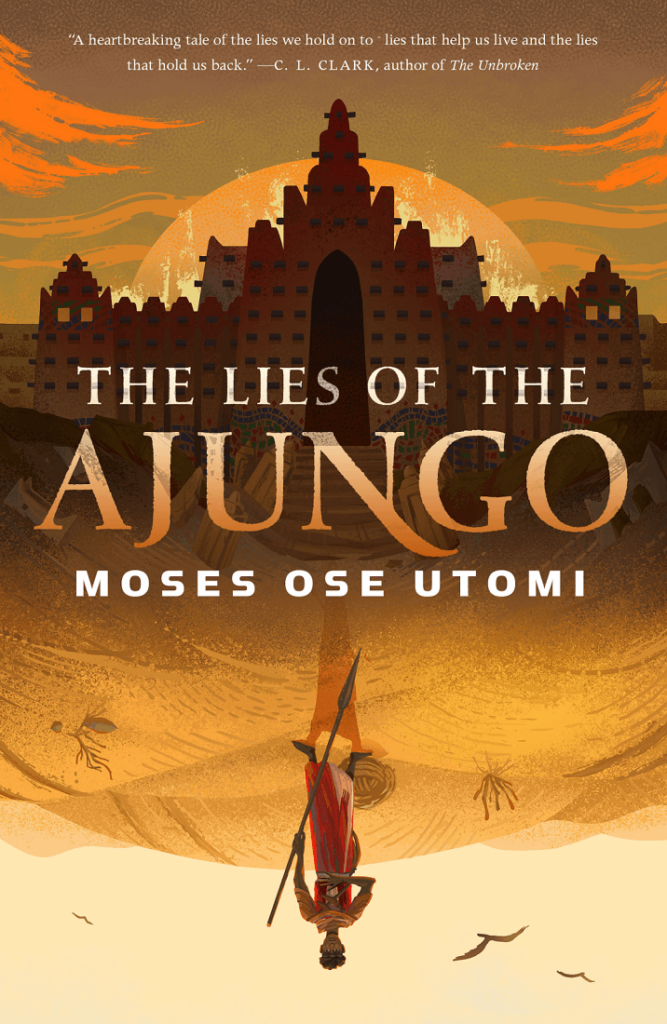
Genres: Fantasy
Goodreads
Moses Ose Utomi's debut novella, The Lies of the Ajungo , follows one boy’s epic quest to bring water back to his city and save his mother’s life. Prepare to enter the Forever Desert.
A Library Journal Best Book of the Month!
They say there is no water in the City of Lies. They say there are no heroes in the City of Lies. They say there are no friends beyond the City of Lies. But would you believe what they say in the City of Lies?
In the City of Lies, they cut out your tongue when you turn thirteen, to appease the terrifying Ajungo Empire and make sure it continues sending water. Tutu will be thirteen in three days, but his parched mother won’t last that long. So Tutu goes to his oba and makes a she provides water for his mother, and in exchange he will travel out into the desert and bring back water for the city. Thus begins Tutu’s quest for the salvation of his mother, his city, and himself.
The Lies of the Ajungo opens the curtains on a tremendous world, and begins the epic fable of the Forever Desert. With every word, Moses Ose Utomi weaves magic.
In The Lies of the Ajungo, there’s a kind of magic called Seeing, and one of the many things I love about it is that it’s got little to do with physical sight. Seeing is about seeing the world – it’s powered by conviction, and the conviction comes from knowing. Knowing what? Anything, if I understood correctly – the more you know, and the more you believe in what you know, the stronger a Seer you are. Seeing seems to be about seeing the world as it truly is – believing lies doesn’t power a Seer; you have to know, and believe in, the objective truth.
In usage, Seeing reminds me a lot of martial arts type superpowers – Seers channel force, which most of the time looks like aggressive telekinesis, and is very badass indeed in a fight. But we have references to it being used for very different purposes too, which I hope we’ll see more of in the sequels!
Maybe my favourite thing about Seeing is that it’s a metaphor for the whole book. But I can’t talk about that without spoilers.
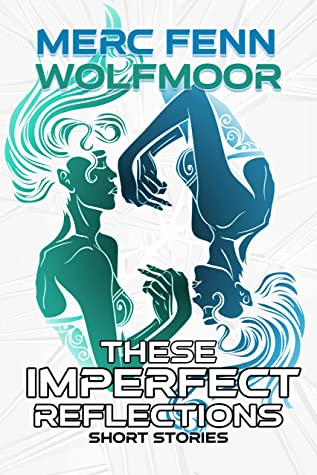
Genres: Fantasy, Queer Protagonists, Sci Fi
Goodreads
What's the price of revolution backed by artificial intelligence? Can you change the past to free ghosts trapped in endless loops? Do fairy tales always end the same way?
Follow a battle poet on aer quest to save a kingdom; witness the last documentary about alien whales; and travel with the Wolf who is prophesied to eat the sun as they look for alternatives to their fate.
From living trains to space stations populated with monsters, these eleven fantasy and science fiction stories from Merc Fenn Wolfmoor will take you on otherworldly adventures that are tethered to the heart.
These Imperfect Reflections is full of gorgeous, incredible stories, but one definitely stuck with me even more then the rest. In “The Words of Our Enemies, the Words of Our Hearts”, the main character Yarchuse is a Tomeslinger, whose magic is literally magic words and books – ae builds a Poet Wall around the camp of aer Queen that is made out of words, wears armour made of the same, and prays to the Unearthly Library, the place where ae was confirmed a Tomeslinger and that contains ‘all the souls of every book’. When ae dies, ae will even become a book in that library. We even see raptors (the dinosaur kind, not the birds)(although I guess birds are dinosaurs??? whatever, you know what I mean!) built out of paper and ink that are very nearly as deadly as the flesh-and-blood kind!
And really – come on. How could I not adore a magic system built around books and words like that?
That makes 10! Looking for more? You can find them in my earlier lists here;
Ten Ridiculously Cool Magic Systems!
Ten (More) Ridiculously Cool Magic Systems!
Ten (Even More) Ridiculously Cool Magic Systems!
Or you can check out my lists featuring unique magical abilities – start here, and keep an eye out for this year’s in the next few days!
What are some of your favourite magic systems?
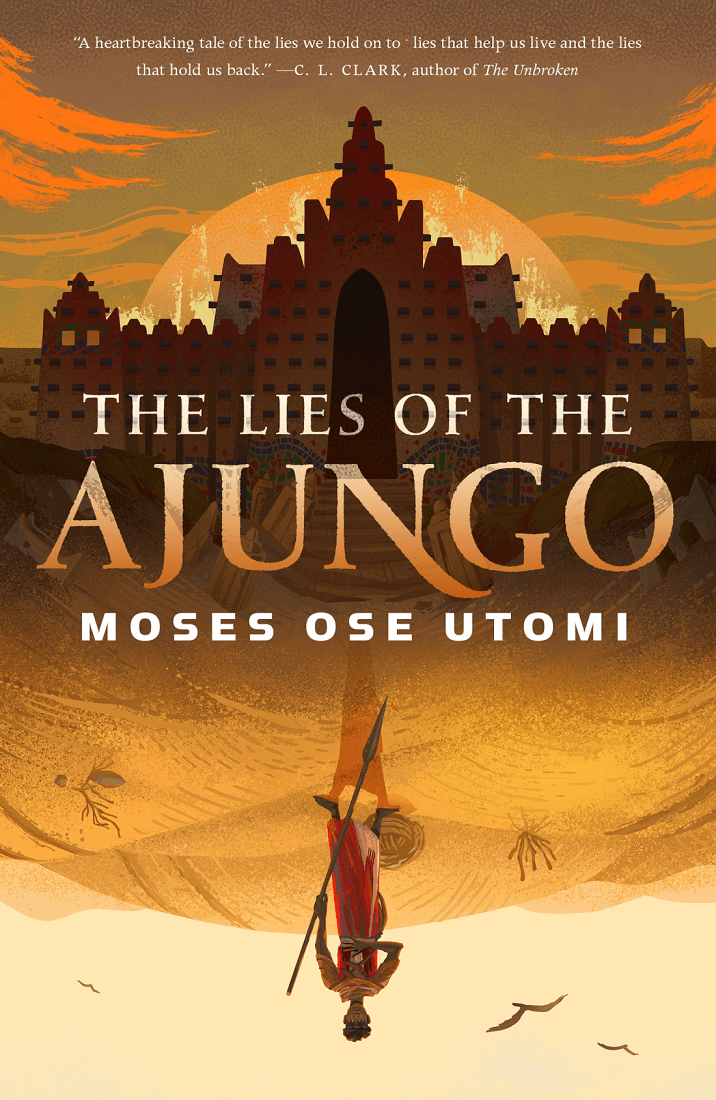
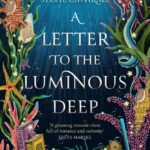

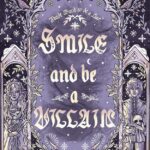
What a great idea for a list, and what a great list! Cool magic is definitely one of the things that makes me want to pick up a book.
So jealous that you’ve read Witch King already! And thank you for including the Liavek collection: I’ve never heard of these stories, and they sound really interesting.
Thank you! I do this one for Wyrd and Wonder every year, so this is my fourth take on cool magic systems. And I’m the same; I love strange and out-there systems, so I like to boost the ones I know!
I deserve the jealousy, Witch King is wonderful, but you only have to wait a few more days now!!! And I’d never heard of Liavek either, I only just discovered them a little while ago. There were more stories in the setting written by other authors, but the collection I included here was the only one I could find still in print.